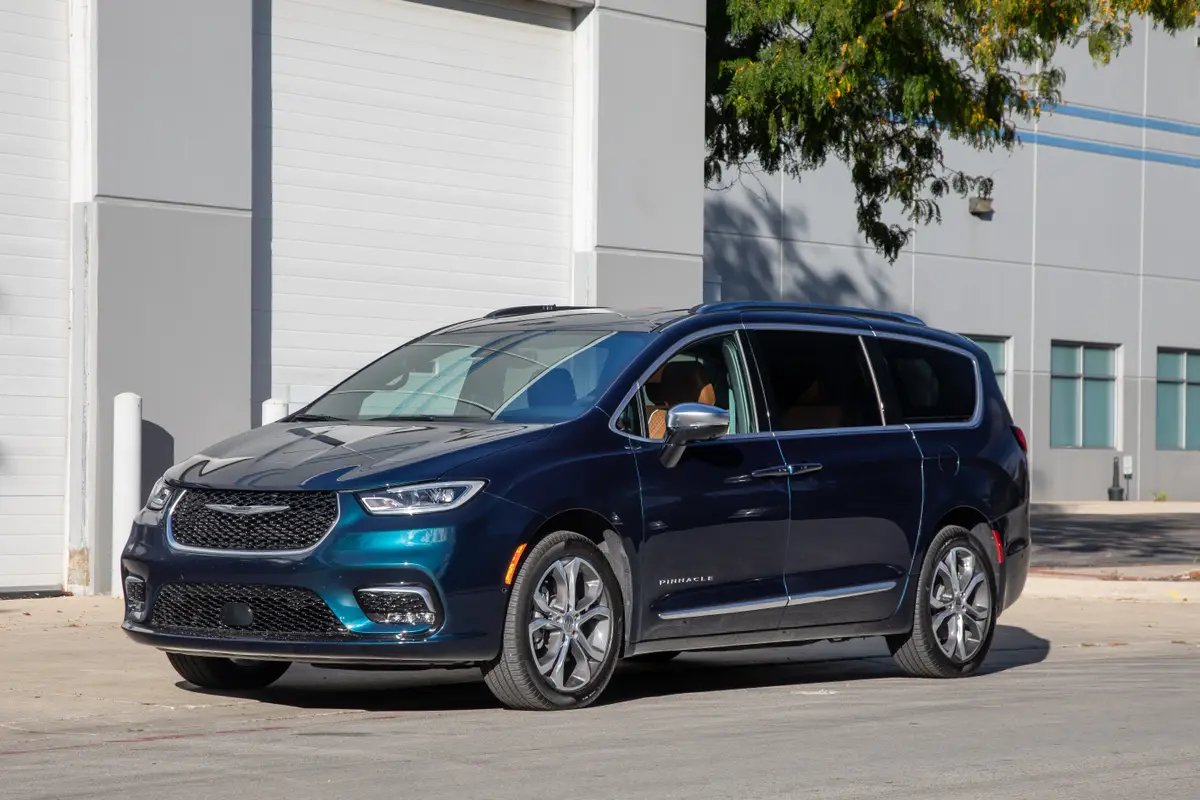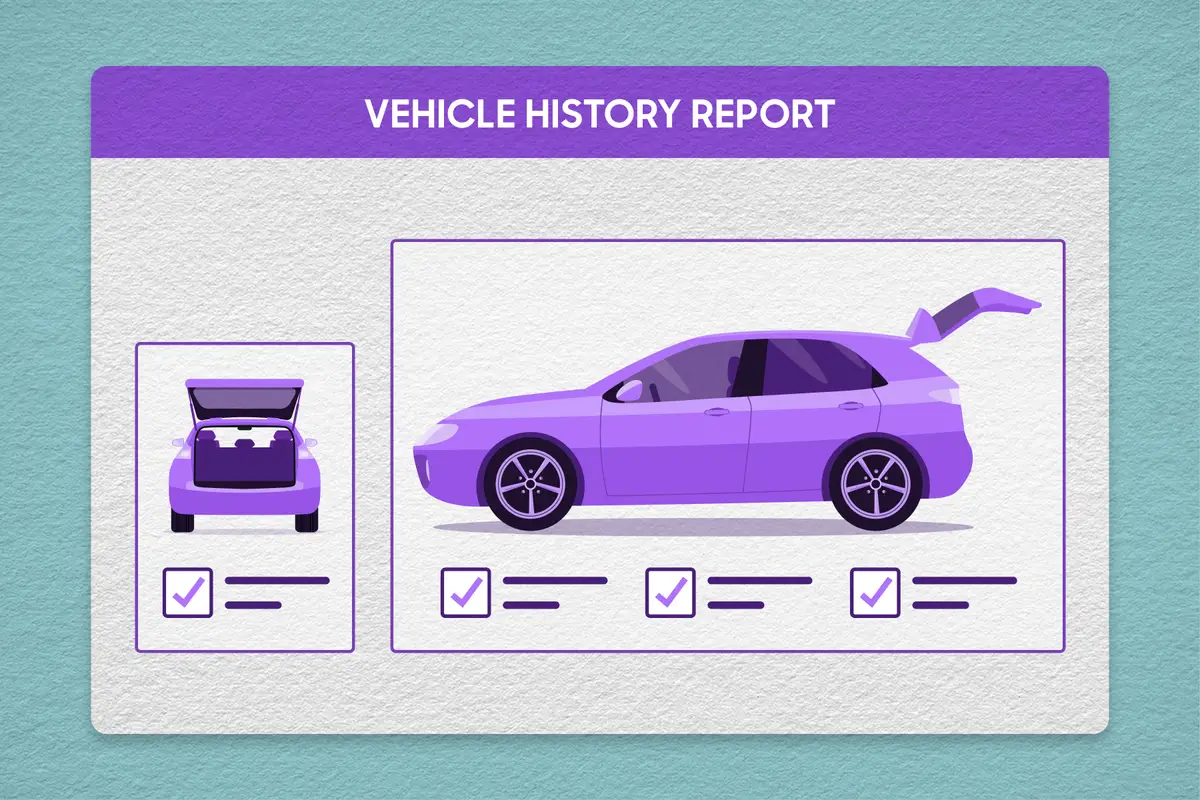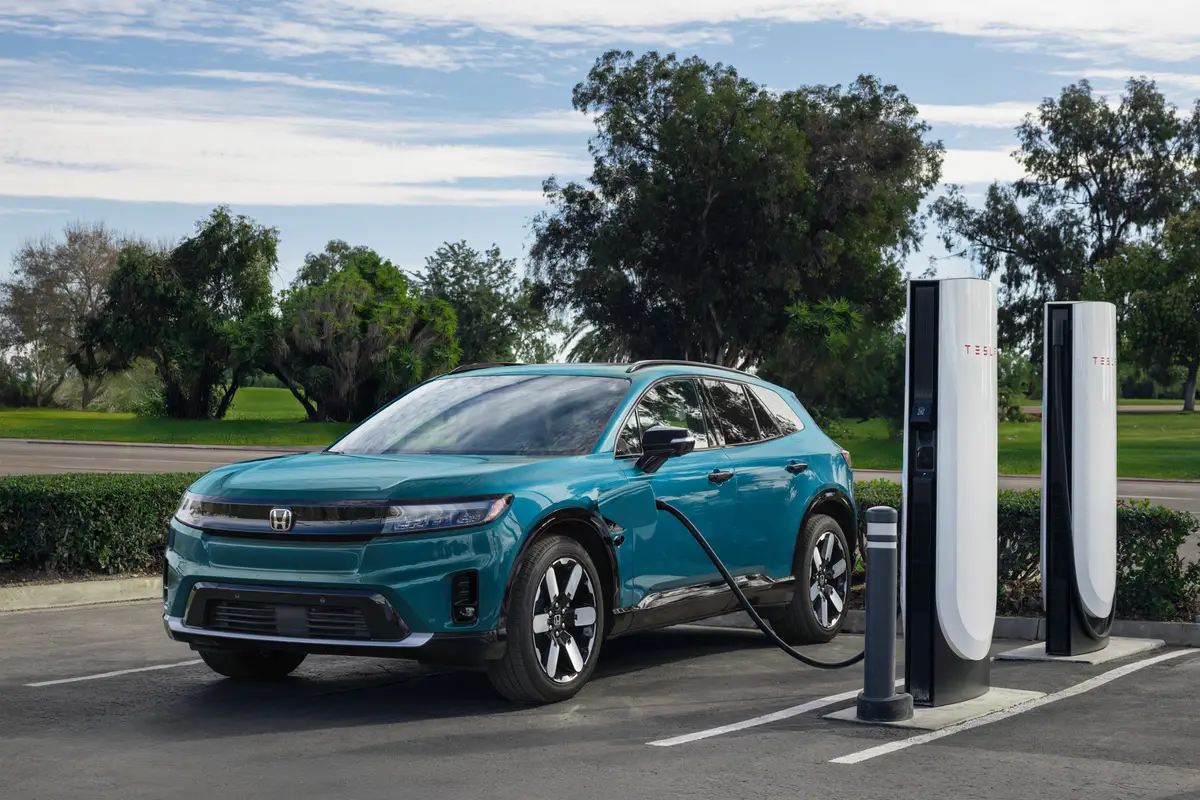Top 10 Most Efficient Electric Cars for 2022

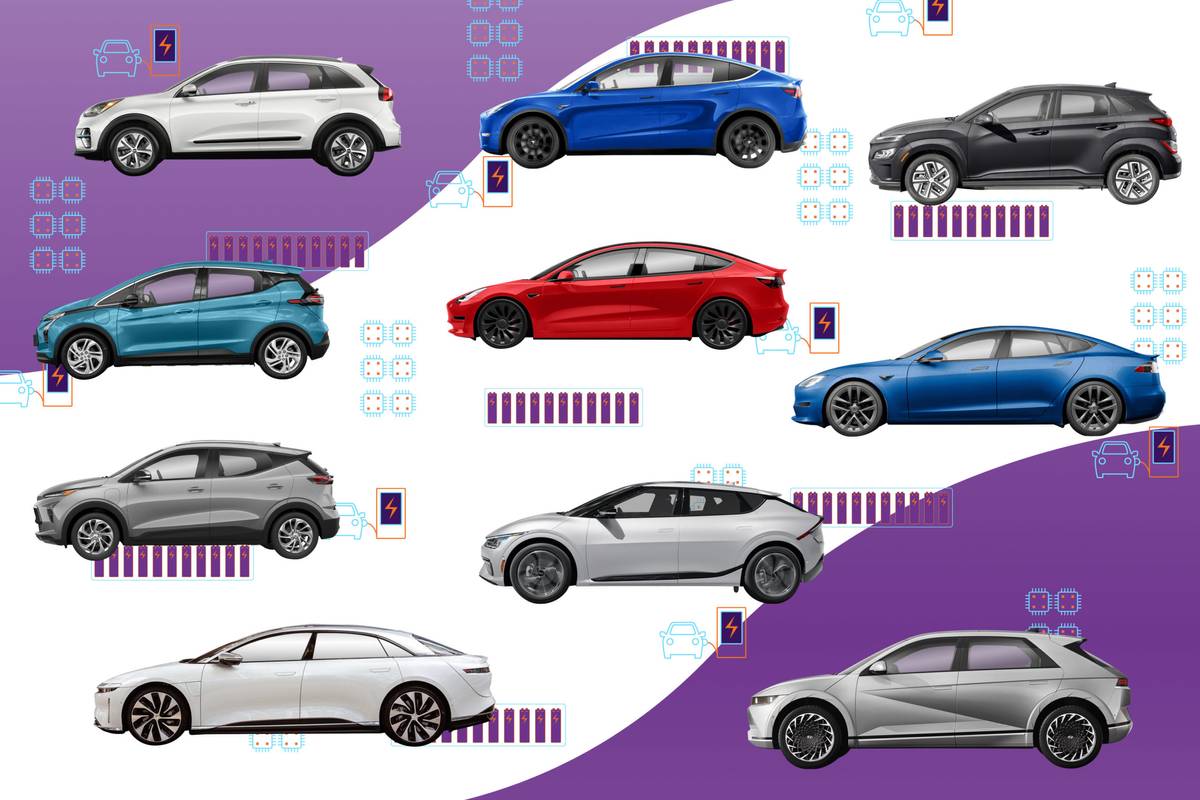
When electric vehicles are the subject, one specification that’s routinely cited is overall range. Its prominence is partly in response to early EVs that had sub-100-mile driving ranges, but it’s also referenced to show just how far modern-day EVs can travel — on par with gas-powered vehicles in some cases. It’s an important spec — especially for someone whose only car may be an EV — but there’s another important data point to consider, and that’s overall efficiency.
Related: Electric Cars With the Longest Range
Even the most inefficient EVs are more efficient than the most efficient gas-electric hybrids when evaluated using the EPA’s mpg-equivalent rating, which is an effort to represent EV efficiency in terms familiar to shoppers, where higher numbers are better. As of publication, the least efficient EV from the 2022 model year is the Audi E-Tron S, which is rated 62/64/63 mpg-e city/highway/combined. The most efficient hybrid is the 2022 Hyundai Ioniq Blue, which is rated 58/60/59 mpg.
But just as there are large differences in efficiency between certain gas-powered vehicles, there are also significant differences between electric-powered ones. And beyond the same benefits that come with having a more efficient gas vehicle — using less (and spending less money on) energy — the most efficient EVs also replenish miles of range faster when charging than the less efficient ones, all other things being equal.
Taking the E-Tron S again, it uses 53 kilowatt-hours of energy to travel 100 miles, according to the EPA. The most efficient EV from the 2022 model year, the rear-wheel-drive Tesla Model 3, uses 25 kWh, or less than half the amount of energy. The E-Tron S has a higher-capacity onboard charger than the RWD Model 3 — 9.6 kilowatts versus 7.6 — but if both vehicles charged at 7.6 kW, it would take around 7 hours to add 100 miles of range to the E-Tron S and a little less than 3.5 hours to add the same amount of range to the Model 3. Charging at the E-Tron S’ maximum rate of 9.6 kW, it would still take 5.5 hours to add 100 miles of range.
The E-Tron S is larger than the Model 3, but you’ll find the specifications reveal substantial efficiency differences between models in the same class.
This same type of analysis can be applied to gas-powered vehicles, too, as the EPA provides gallons-per-100-miles data. However, the high speed at which a gas tank can be replenished, with the difference in adding 10 gallons or 20 gallons measured in minutes versus hours, makes any time saved by choosing a more efficient gas vehicle less consequential.
The following list highlights the 10 most efficient EVs of the 2022 model year. Where more than one version of a given model qualifies, we selected the most efficient version. Energy use, combined efficiency and range are EPA-estimated figures. Prices do not include any available local, state or federal incentives.
Most Efficient Electric Vehicles (Energy Use Per 100 Miles)
1. 2022 Tesla Model 3 RWD: 25 kWh
2. 2022 Lucid Air Grand Touring w/19-inch wheels: 26 kWh
3. 2022 Chevrolet Bolt EV: 28 kWh
4. 2022 Hyundai Kona EV: 28 kWh
5. 2022 Tesla Model S: 28 kWh
6. 2022 Tesla Model Y Long Range: 28 kWh
7. 2022 Chevrolet Bolt EUV: 29 kWh
8. 2022 Kia EV6 RWD: 29 kWh
9. 2022 Hyundai Ioniq 5 RWD: 30 kWh
10. 2022 Kia Niro EV: 30 kWh
2022 Tesla Model 3 RWD
Energy use: 25 kWh/100 miles
Combined efficiency: 132 mpg-e
Price: $46,190, including $1,200 destination charge
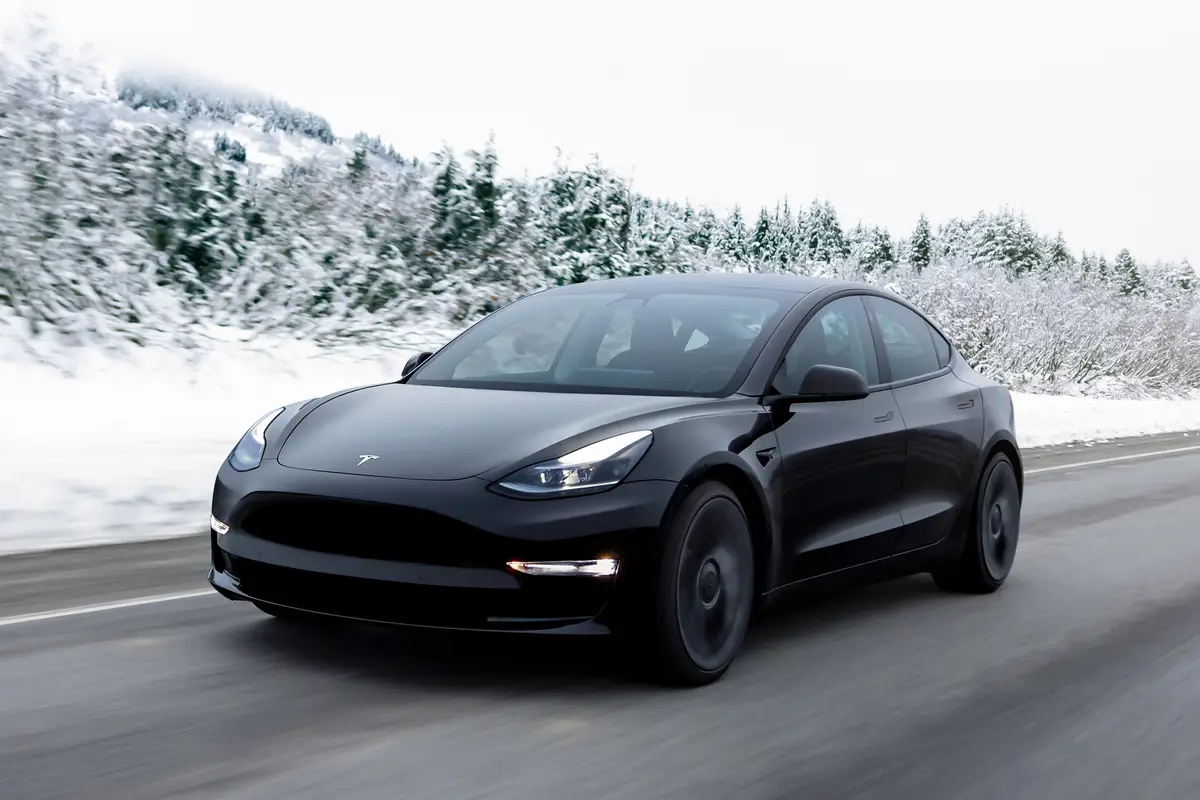
The rear-wheel-drive, standard-range Tesla Model 3 compact sedan is the most efficient EV of 2022, with rated energy use of 25 kWh per 100 miles. Its 272 miles of range is the shortest in the Model 3 lineup, but the all-wheel-drive, long-range Model 3 is nearly as efficient; it uses 26 kWh per 100 miles and gets a significant bump in range to 358 miles. It’s also $6,000 more, however.
2022 Lucid Air Grand Touring With 19-inch wheels
Energy use: 26 kWh/100 miles
Combined efficiency: 131 mpg-e
Price: $139,000, not including destination
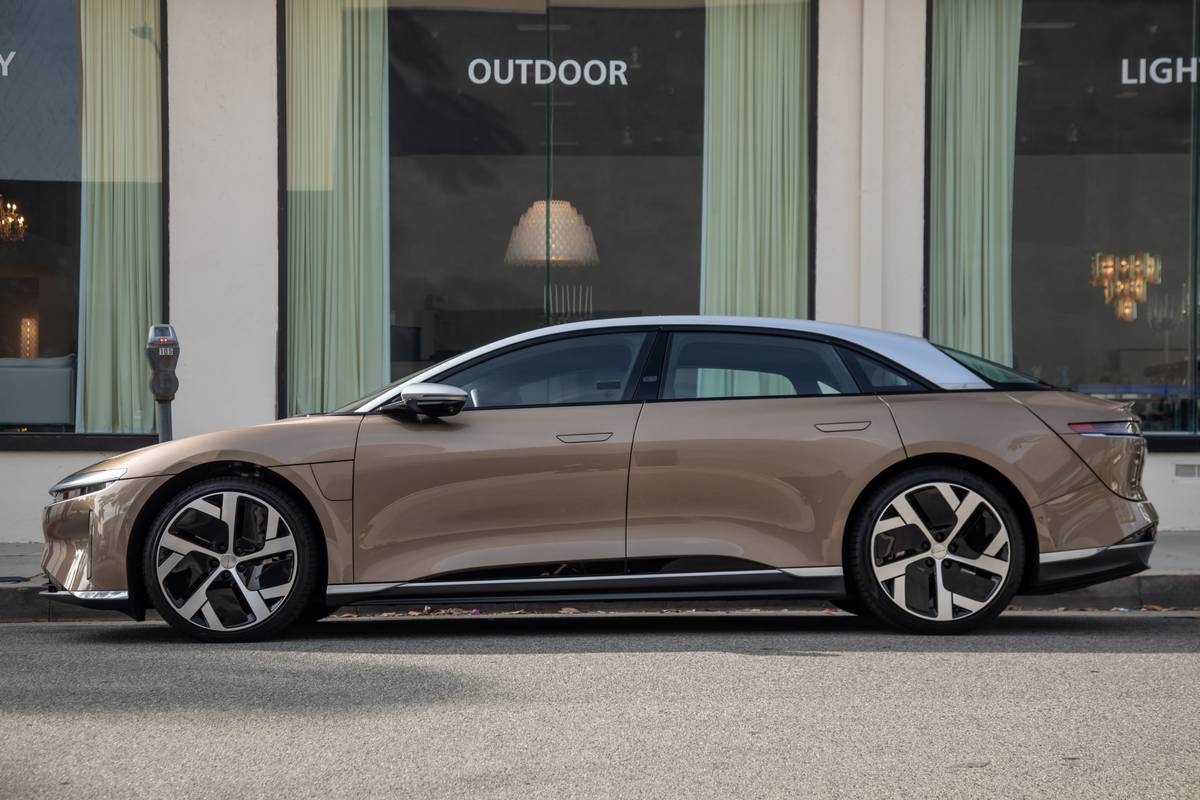
The Lucid Air is an all-new luxury sedan from an all-new EV brand. With energy use of 26 kWh per 100 miles, it’s nearly as efficient as the most efficient Model 3, but the Air’s 516-mile driving range is almost double the Tesla’s. Of course, the Air is also three times as expensive.
2022 Chevrolet Bolt EV
Energy use: 28 kWh/100 miles
Combined efficiency: 120 mpg-e
Price: $32,495, including $995 destination
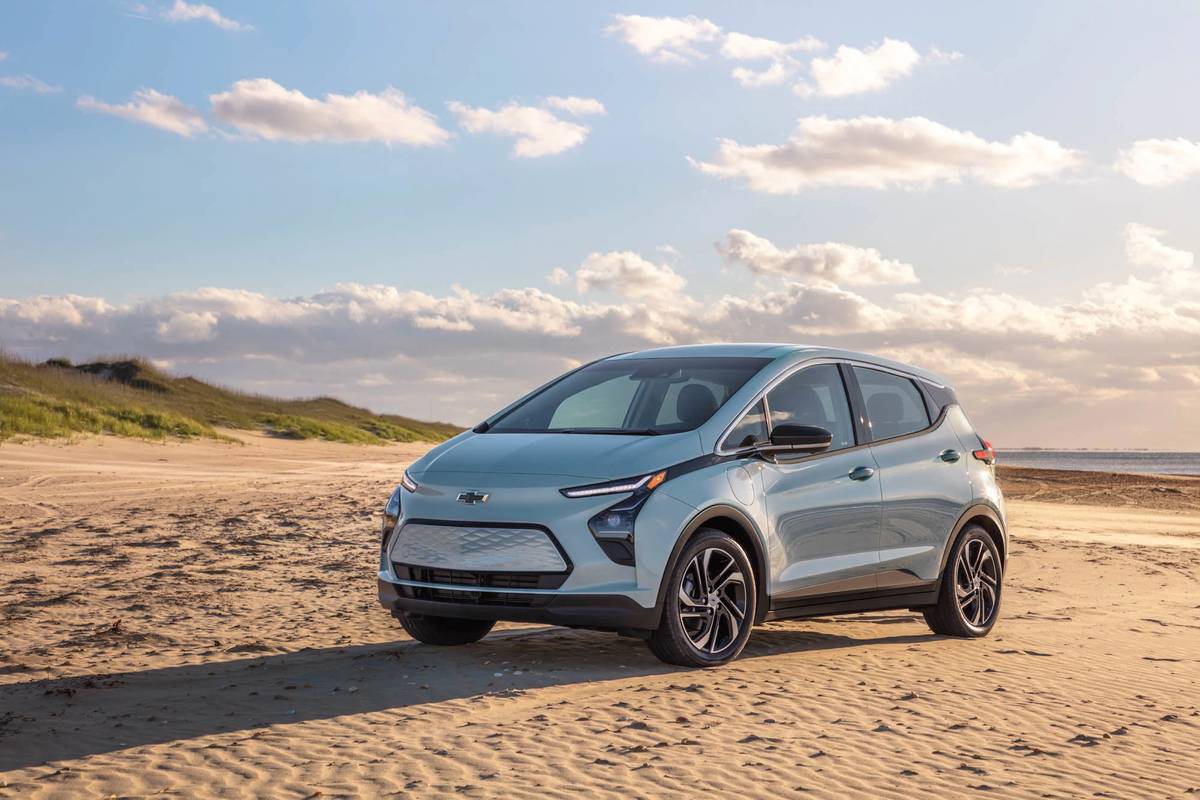
Chevrolet refreshed its Bolt EV hatchback for 2022, but the vehicle’s debut has been overshadowed by a series of recalls to address a fire risk with the car’s battery pack. Production of the Bolt EV is set to resume soon, and the hatchback remains one of the most efficient EVs you can buy; it uses 28 kWh of energy per 100 miles, and its overall range is a decent 259 miles. With a starting price of $32,495, including destination, it’s also the most affordable EV on this list.
2022 Hyundai Kona EV
Energy use: 28 kWh/100 miles
Combined efficiency: 120 mpg-e
Price: $35,245, including $1,245 destination
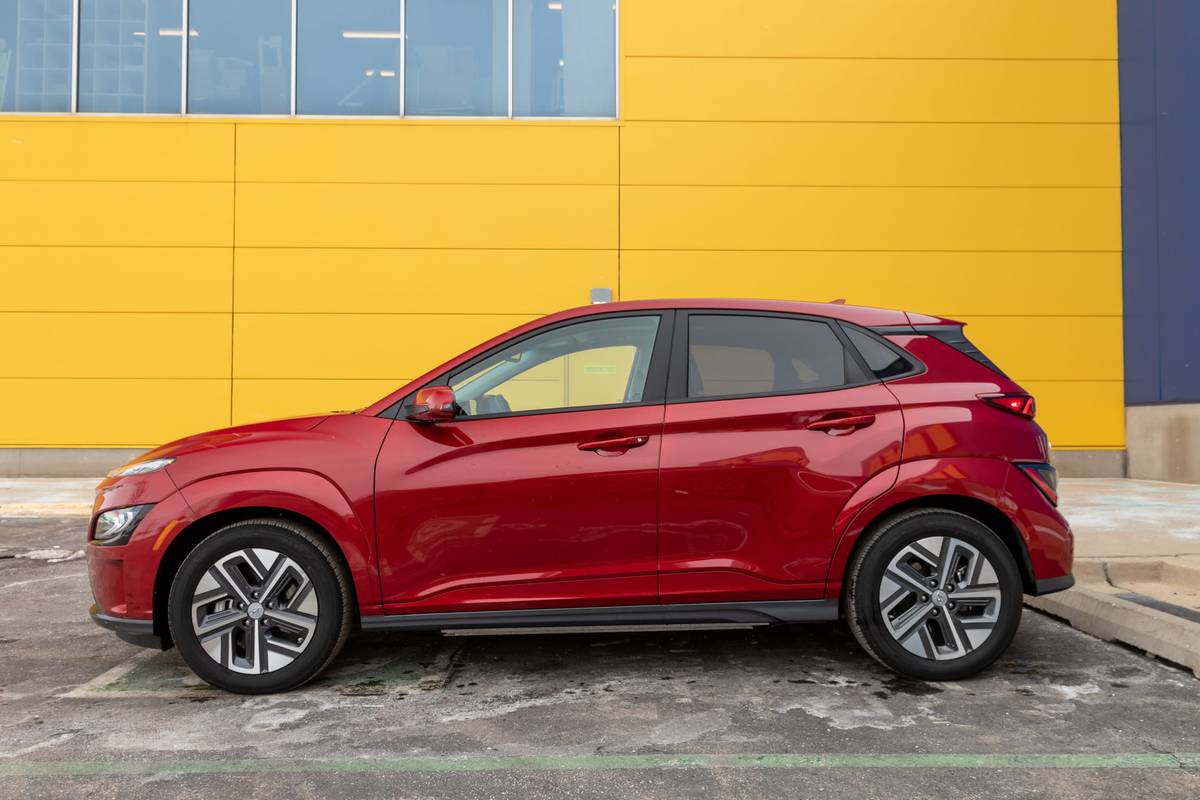
The Kona EV is a subcompact SUV, but unlike the gas-engine Kona, which comes with front-wheel drive or AWD, the Kona EV is only available with FWD. It’s rated at 28 kWh per 100 miles and has a 258-mile range.
2022 Tesla Model S
Energy use: 28 kWh/100 miles
Combined efficiency: 120 mpg-e
Price: $96,190, including $1,200 destination
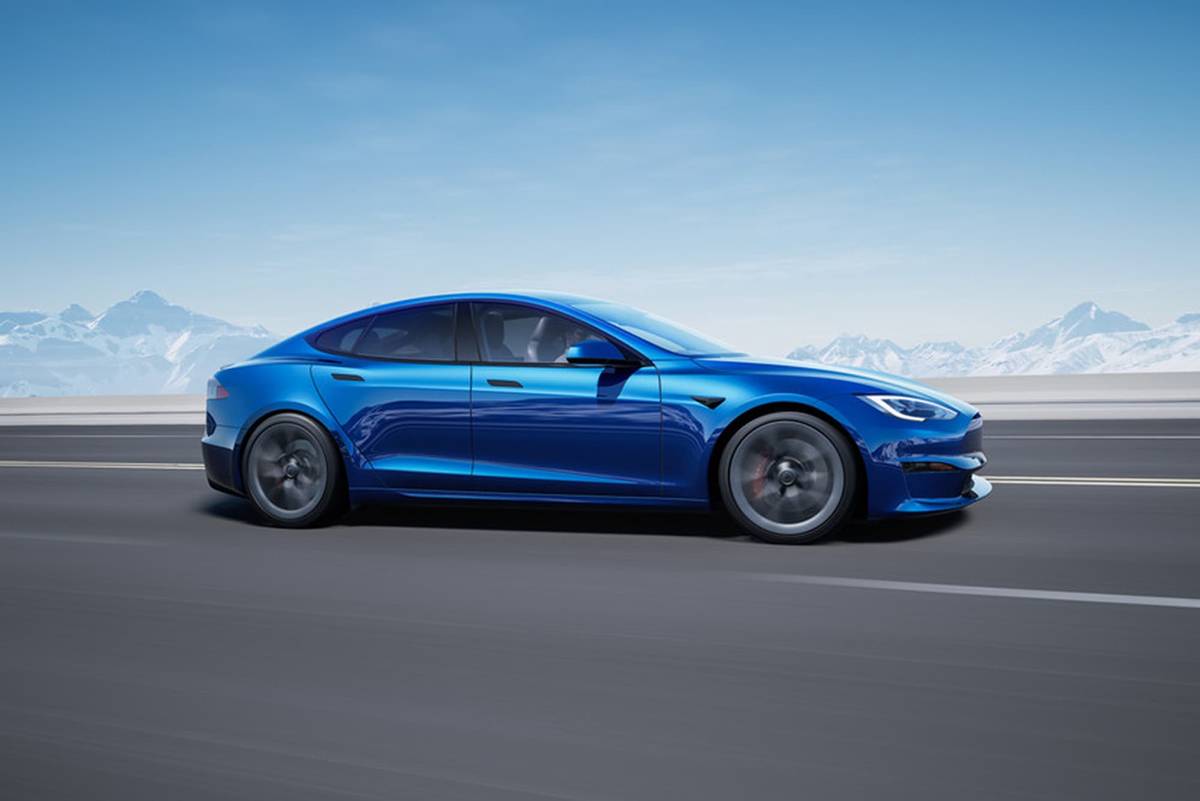
The Model S debuted as a 2012 model, and Tesla has steadily improved the luxury sedan’s efficiency since then, reducing the amount of energy needed to travel 100 miles from 38 kWh in 2012 to 28 kWh in 2022. There have been other changes, too, including a revamped interior for 2021 that features an all-new dashboard layout and a steering yoke instead of a traditional steering wheel. This version of the Model S offers 405 miles of range.
2022 Tesla Model Y Long Range
Energy use: 28 kWh/100 miles
Combined efficiency: 122 mpg-e
Price: $60,190, including $1,200 destination
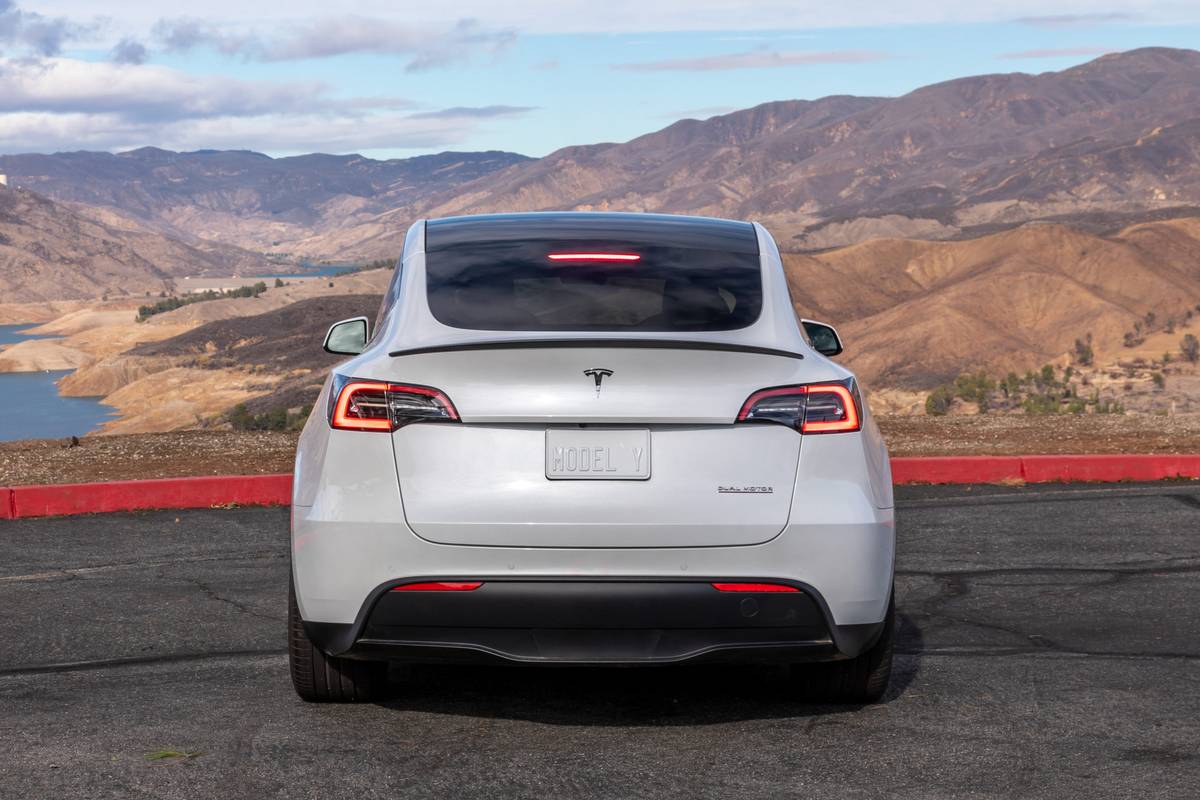
The Model Y compact luxury SUV comes standard with AWD and a long-range battery pack that gives it a 330-mile driving range. Like the Model S, it uses 28 kWh per 100 miles. Cars.com purchased this version of the Model Y, albeit as a 2021 model, and you can follow our ownership experience here.
2022 Chevrolet Bolt EUV
Energy use: 29 kWh/100 miles
Combined efficiency: 115 mpg-e
Price: $34,495, including $995 destination
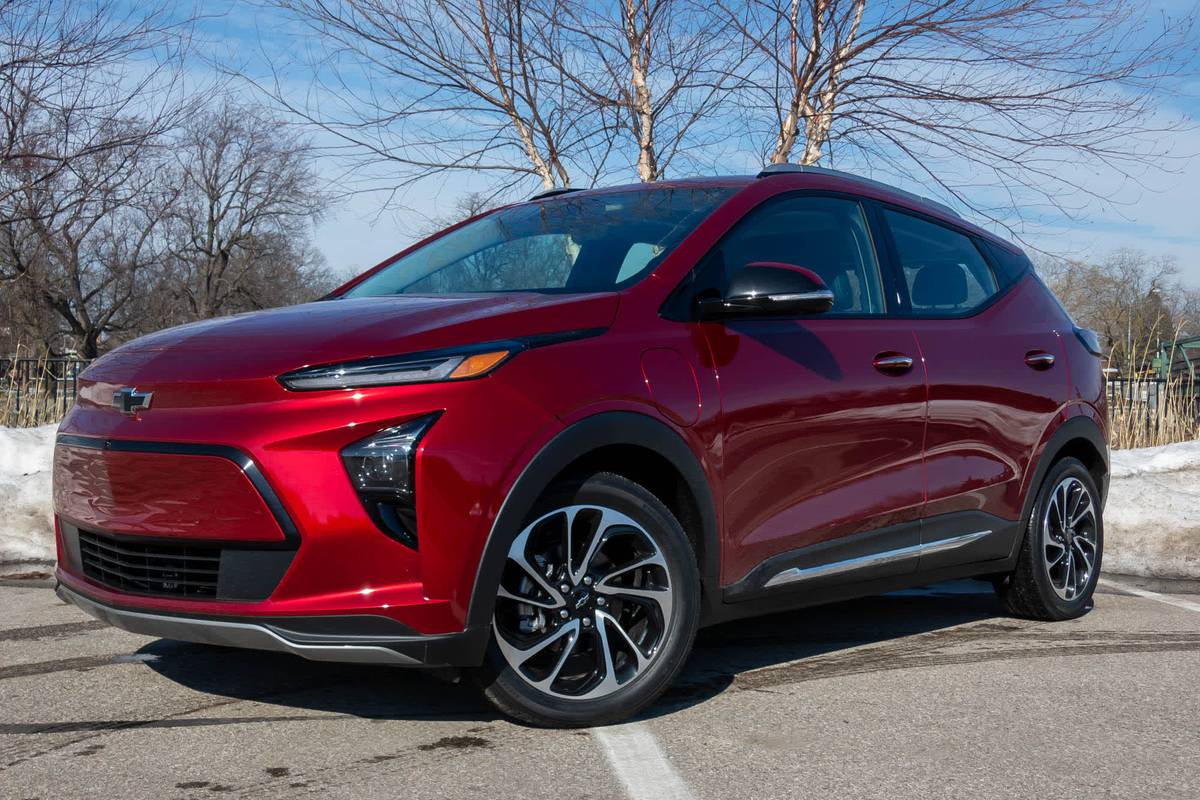
The all-new Bolt EUV is slightly longer than the related Bolt EV, and it has a 247-mile range. It’s nearly as efficient as the Bolt EV, with a rating of 29 kWh per 100 miles. The EUV has been part of the same battery recall involving the Bolt EV.
2022 Kia EV6 RWD
Energy use: 29 kWh/100 miles
Combined efficiency: 117 mpg-e
Price: $42,115, including $1,215 destination
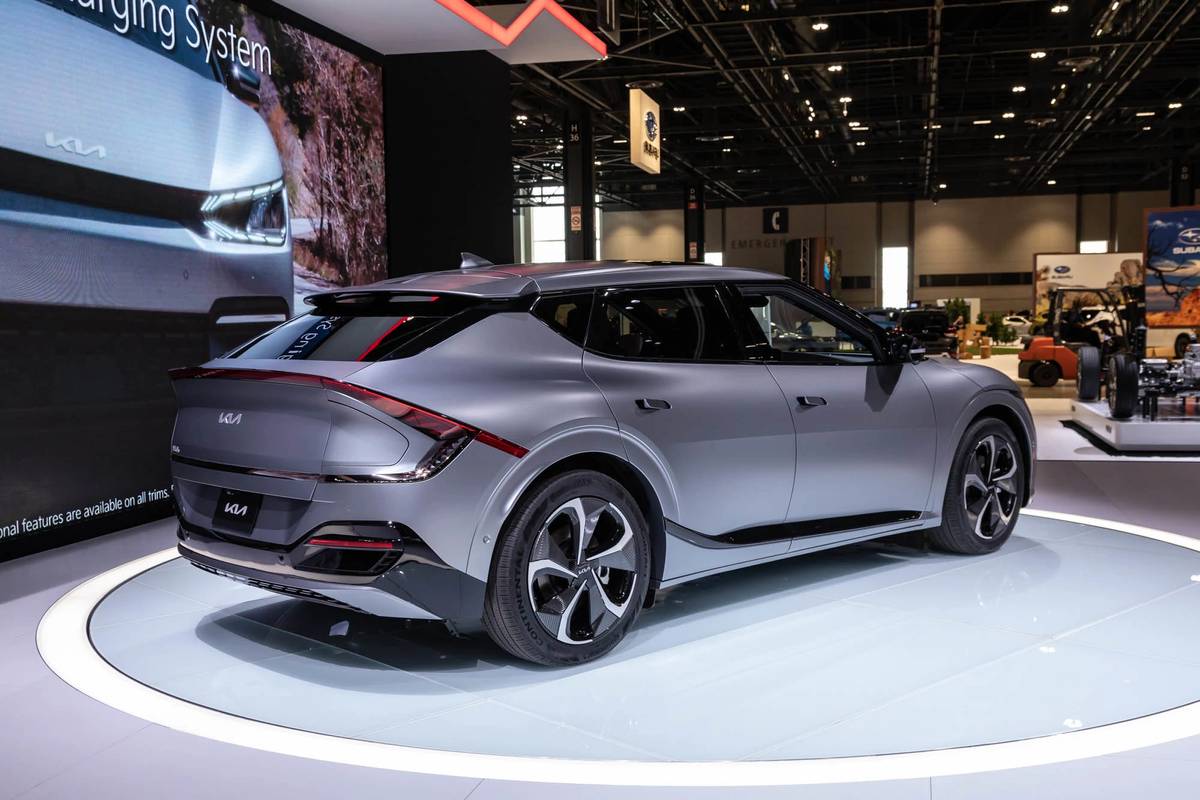
In RWD form, Kia’s all-new EV6 uses 29 kWh of energy per 100 miles with its standard-range battery that offers 232 miles of range and with its long-range battery that increases range to 310 miles. Choosing available AWD, which is offered only with the long-range battery, lowers efficiency to 32 kWh and range to 274 miles.
2022 Hyundai Ioniq 5 RWD
Energy use: 30 kWh/100 miles
Combined efficiency: 114 mpg-e
Price: $44,895, including $1,245 destination
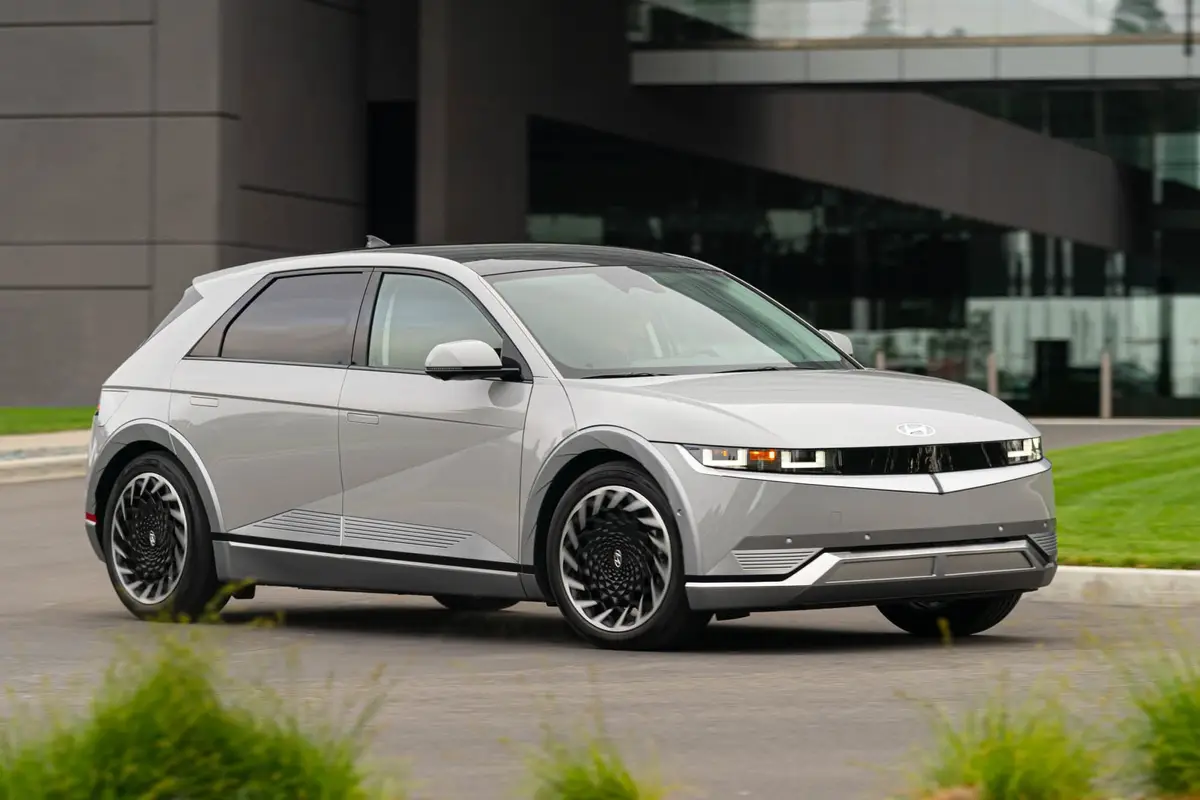
The RWD Ioniq 5 delivers 303 miles of range and is the most efficient version of Hyundai’s all-new EV, with a rating of 30 kWh per 100 miles. Choosing AWD lowers efficiency to 34 kWh and 256 miles of range.
2022 Kia Niro EV
Energy use: 30 kWh/100 miles
Combined efficiency: 112 mpg-e
Price: $41,205, including $1,215 destination
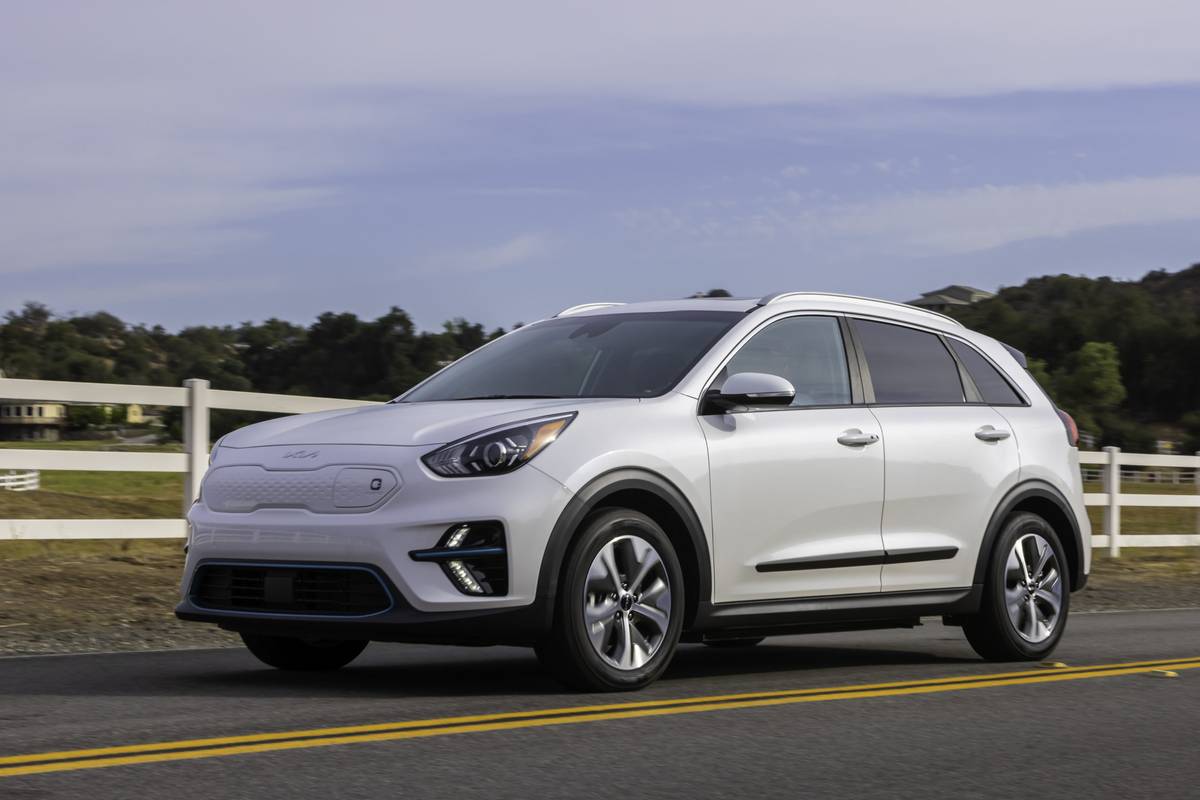
All versions of the Niro EV have FWD and the same high-voltage battery pack that’s good for 239 miles of range. Whether you choose the base EX trim or uplevel EX Premium, the Niro EV uses 30 kWh per 100 miles.
More From Cars.com:
- Your Guide to EV Batteries: Premature Death, Range Loss and Preservation
- Home EV Chargers and How to Choose One
- What Is Level 1, 2, 3 Charging?
- What’s New With Electric Vehicles for 2022?
- Which Electric Cars Are Still Eligible for the $7,500 Federal Tax Credit?
Related Video:
Cars.com’s Editorial department is your source for automotive news and reviews. In line with Cars.com’s long-standing ethics policy, editors and reviewers don’t accept gifts or free trips from automakers. The Editorial department is independent of Cars.com’s advertising, sales and sponsored content departments.

Mike Hanley has more than 20 years of experience reporting on the auto industry. His primary focus is new vehicles, and he's currently a Senior Road Test Editor overseeing expert car reviews and comparison tests. He previously managed Editorial content in the Cars.com Research section.
Featured stories
